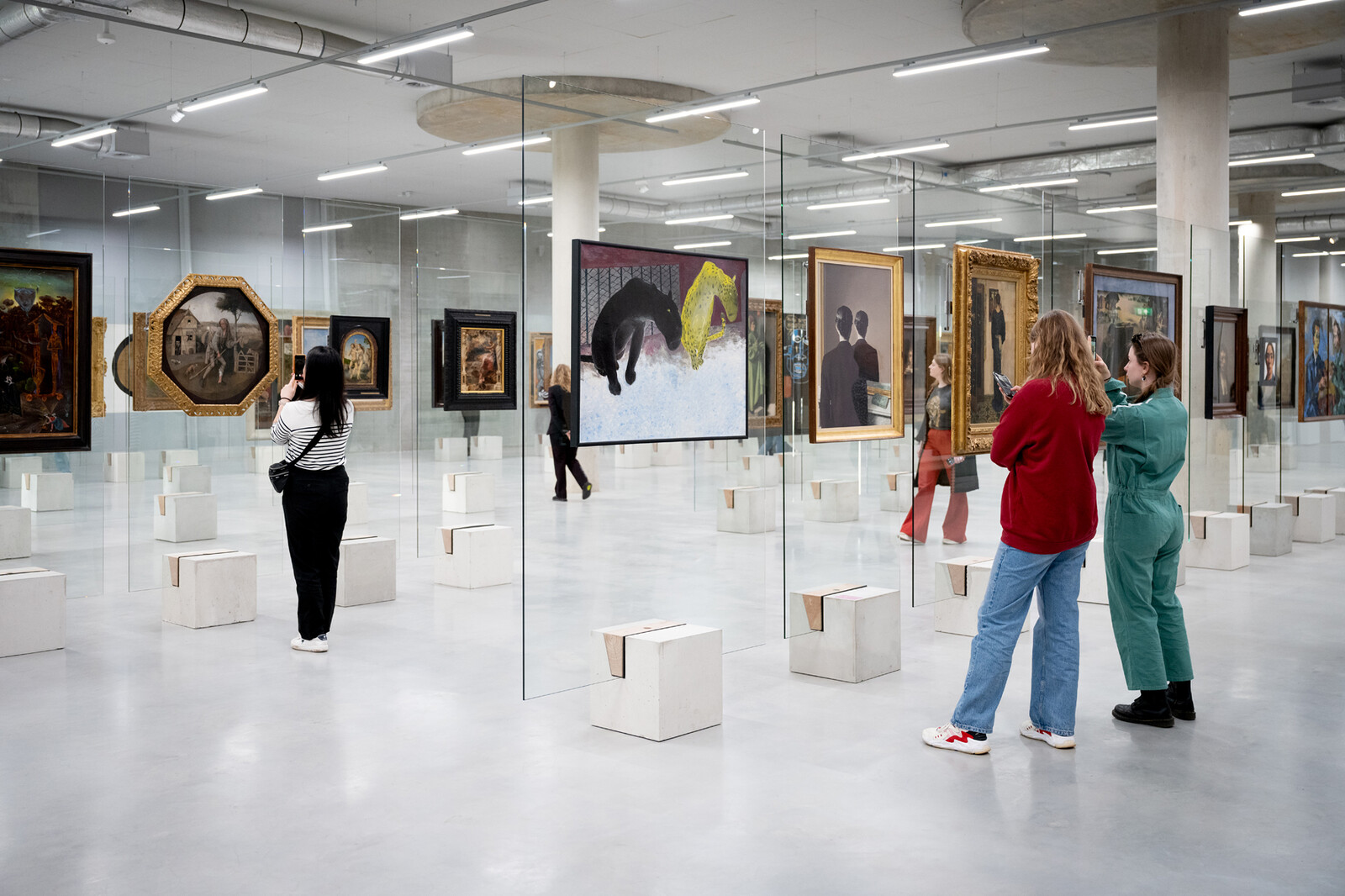March 2, 2024–April 13, 2025
Museumpark 24
Rotterdam
The Netherlands
Since March 2024, Museum Boijmans Van Beuningen brings together the public’s favourite works from the collection in the exhibition Beloved. Presented on the fifth floor of the Depot, the exhibition features almost seventy paintings and ten sculptures by great names such as Hieronymus Bosch, Pieter Bruegel the Elder, Rembrandt, Rachel Ruysch, Vincent van Gogh, Pablo Picasso, Salvador Dalí, René Magritte, Charley Toorop, Jean-Michel Basquiat and many others.
Beloved is a celebration of the 175th anniversary of Museum Boijmans Van Beuningen. The works have been selected by the public: over the past two years, visitors to thet Depot have been able to select their favourite works from the collection. The selection provides a wonderful survey of the museum’s history of collecting paintings and sculptures.
Beloved XL on the Depot’s third and fourth floors features fourteen large-scale works by artists such as Mark Rothko, Andy Warhol and Yayoi Kusama.
Celebrating 175 Years of Boijmans
The highlights of the painting collection are usually displayed in the museum’s galleries, but now that the museum has been closed for renovation, the most popular works are shown in the Depot as part of the 175th anniversary celebrations. Some paintings have been highlights since the museum’s inception, such as A Cornfield by Jacob van Ruisdael, part of Frans Boijmans’ collection. Many other highlights, including The Tower of Babel by Pieter Bruegel the Elder, were acquired in 1958 as part of the collection of Daniel George van Beuningen. Next to these two men who gave their names to the museum, many other collectors have contributed to the collection, like Marie Tak van Poortvliet, who bequeathed Wassily Kandinksy’s Lyrical in 1936.
Public favourites
Over the past two years, Depot visitors have chosen their own highlights from the collection. Their favourite works, including Cézanne’s Landscape near Aix and Charley Toorop’s Self-Portrait, have been included in the selection where possible. What constitutes a highlight is not fixed forever. What is most beloved in one period can fall out of favour in another. Or vice versa: a work that has languished in storage can be rediscovered. Most of the paintings in this selection have captured the public’s imagination for generations. Others have only just arrived, such as Berthe Morisot’s Peonies, which was purchased in 2023. We are also showing works that the public has barely had a chance to see: will they become beloved works in the future?
Crystal easels by Lina Bo Bardi
For this special exhibition, the paintings are shown on crystal easels, a display device conceived for the São Paulo Museum of Art in 1968 by the Italian-born Brazilian architect Lina Bo Bardi (Rome 1914–São Paulo 1992). For her, this was a means of stripping the paintings of their “sacred” character by showing that they are handmade objects that also have a back.
The paintings are hung not on the wall but on free-standing glass plates. Because they are transparent, you can also see the backs of the paintings, which provide information about their materials, technique and provenance.
Beloved XL
Because not all artworks come in handy sizes, extra-large works are displayed in Beloved XL. This selection from the collection of modern and contemporary art features oversized works made between the 1960s and the present by artists from Rotterdam, The Netherlands and abroad. Some of these works have been popular for years because they offer visitors an overwhelming sensory experience. For instance, Infinity Mirror Room—Phalli’s Field (Floor Show) by Yayoi Kusama. Mark Rothko’s Grey, Orange on Maroon, No 8 is admired not only for its meditative fields of colour but also because there are few paintings by this artist in Dutch public collections. Furthermore, Dutch artist Jan van der Ploeg recreated the vast Wallpainting No.155 ‘Staff’, which many visitors will remember from the museum. This is a reference to the beloved museum building, where many of the works became public favourites.
With thanks to Stichting De Verre Bergen.








